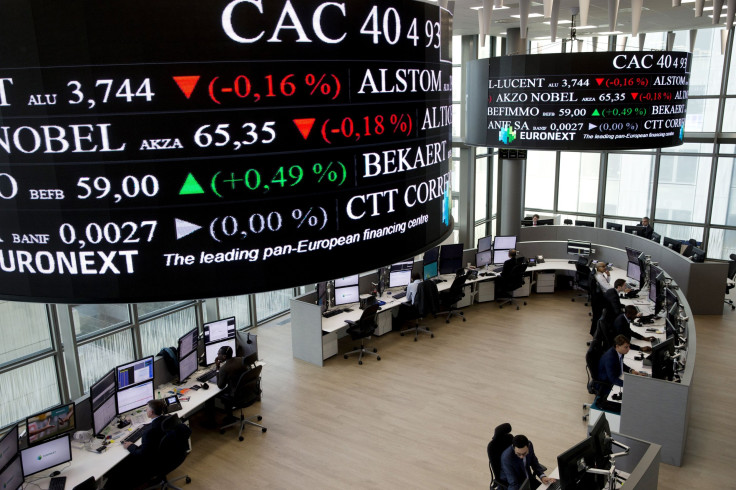Europe Markets Soar Despite Paris Attacks, Negative UK Inflation; German Investor Confidence Recovers

European stock markets staged a decisive rebound Tuesday, shrugging off the initial shock from last week’s deadly attacks in Paris. Stock indexes across the region opened in the green after most Asian bourses ended Tuesday’s trade higher -- buoyed by a strong overnight performance on Wall Street.
France’s CAC 40 index rose nearly 1 percent at the open, and was trading up 2.2 percent in early trade, as investors judged that the attacks are unlikely to have a long-lasting impact on growth.
The pan-European Stoxx 600, which tracks Europe’s 600 biggest companies, also surged over 2 percent during early trading, while London’s FTSE 100 and Germany’s DAX rose over 1.7 percent.
“Strong gains in both U.S. and Asian sessions appears to be the driver here, although it’s difficult to pin the move on any single piece of fundamental data -- but it’s clear that at least for now, the majority of stocks globally remain unfazed by last week’s terrorist attacks in Paris,” Tony Cross, analyst at TrustNet Direct, reportedly said.
Investor sentiment was also helped by indications that the European Central Bank is likely to announce more stimulus measures soon.
In the U.K., markets continued to rally despite the release of inflation data Monday, which showed that consumer prices fell for a second consecutive month in October. While the news is likely to dampen expectations that the Bank of England will raise interest rates any time soon, some have argued that the negative inflation is not necessarily bad news.
“Reduction in prices, combined with rising real incomes and ultra-low interest rates, should help the U.K. recovery plough on despite the headwinds from emerging markets,” Ian Stewart, chief economist at Deloitte, told the Guardian.
Meanwhile, in Germany, data released Monday by the ZEW Center for European Economic Research showed that economic sentiment in the country rose in November, despite the attacks in Paris. The ZEW indicator for Europe’s largest economy surged to 10.4, up from 1.9 in the previous month.
“Economic pessimism appears not to have increased after the terror attacks in Paris,” ZEW President Clemens Fuest said, in a statement. “The currently high level of consumption in Germany, the recent decline in the external value of the euro, and the ongoing recovery in the United States are likely to bolster the robust development of the German economy.”
© Copyright IBTimes 2025. All rights reserved.






















